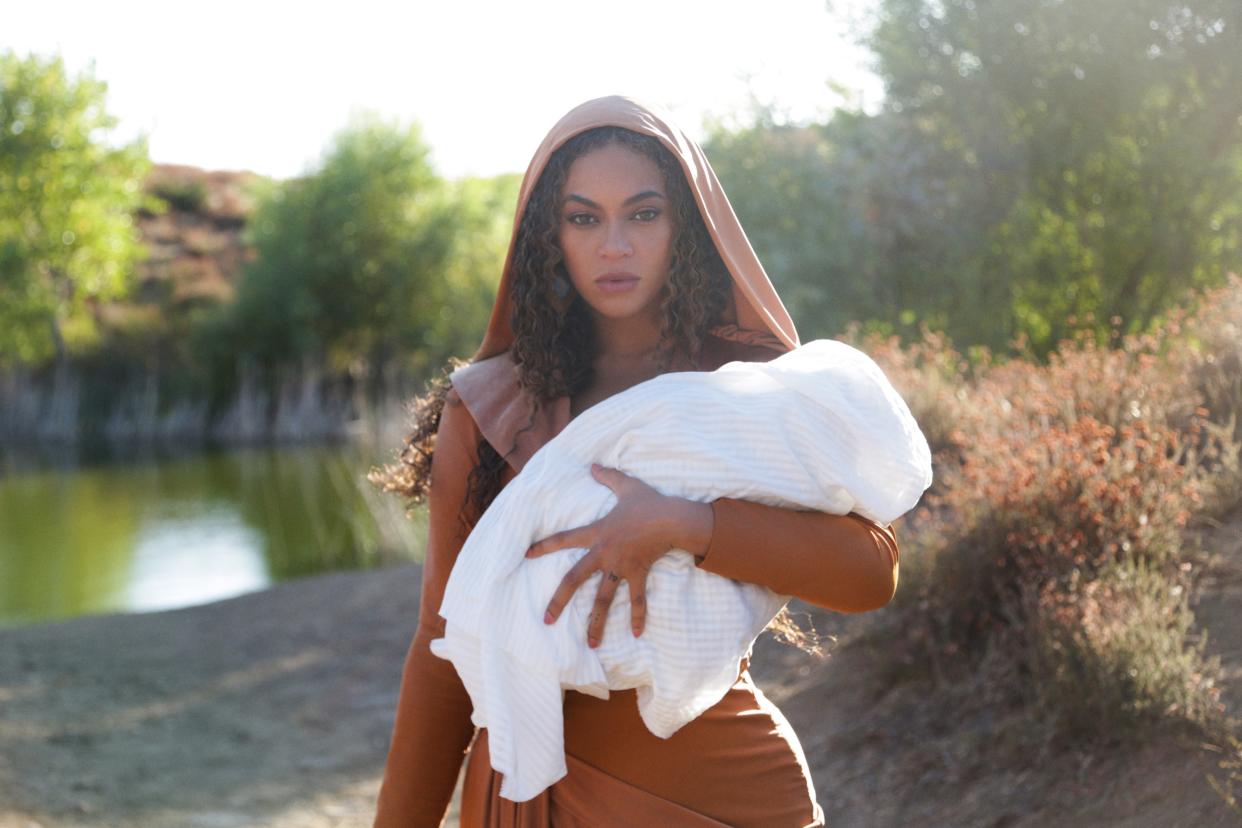‘Black Is King’ Review: Beyoncé Turns ‘The Lion King’ Into an Epic Vision of Black Utopia


Throughout her illustrious career, Beyoncé Knowles Carter has been shaping popular culture from within an industry dominated by whiteness, as all Black artists have been forced to do. Having conquered the music industry, she has now set her sights on the ultimate symbol of lily-white America: Disney. That she has done so from within the system, collaborating and making bank off a studio known for its smash hit spin on Hamlet set in an undefined idea of Africa voiced mostly by white actors, is a particularly genius sleight of hand only she could pull off.
“Black Is King” is not simply another visual album by Beyoncé, it is a bold re-imagining of “The Lion King” from a Black American perspective, and in constant conversation and collaboration with African artists and traditions. Overflowing with stunning visuals, “Black Is King” blends imagery from the Pan-African movement, African art and Western portraiture of African bodies, as well as Beyoncé and Jay-Z’s shared vision of Black excellence within Western culture. The film is steeped in Christian iconography, from the ascension to Black baby Moses placed lovingly in a basket, to multiple paintings of Beyoncé as Madonna with child.
More from IndieWire
'Black Is King' Trailer: Beyoncé Makes Her Disney+ Debut with New Visual Album
Beyoncé Loses to 'Carpool Karaoke' in Head-Scratching Emmys Snub
“Black Is King” dramatizes the music of “The Gift,” an album released in 2019 alongside Disney’s recent remake of the hit 1994 film. The adaptation was directed by Jon Favreau and written by Jeff Nathanson, two white guys who have been very successful in Hollywood. From the minute James Earl Jones’ voiceover plays over colorful portraits of proud Black families staring directly into camera, it’s painfully clear that “The Lion King” always was and should have been an African-told story. And while Beyoncé’s lens is certainly an American one, her inclusion of Nigerian, Ghanaian, and Cameroonian collaborators drives home this necessity.
“We exist together in a delicate balance,” Earl Jones says as Mufasa. “Respect all the creatures. We’re all connected in the circle of life.” Mufasa may have been talking about the animal kingdom, but Beyoncé is clearly talking about humanity. Perhaps these metaphors were top of mind for the original “Lion King” writers, but the message becomes abundantly clear in “Black Is King.”
“The Gift” found Beyoncé collaborating with many musical artists, many of whom appear in “Black Is King.” In addition to appearances by American artists Pharrell Williams, Tierra Whack, and of course Jay-Z, the film prioritizes and centers the many African musicians whose beats and voices score “The Gift.” Nigerian musicians Mr Eazi and Tiwa Savage, Ghanaian singer-songwriter Shatta Wale, and Cameroonian music executive Salatiel all make appearances. By centering and uplifting these featured artists in the film, Beyoncé is very directly acknowledging and honoring the cross-cultural collaboration of “The Gift.”
As the most beautiful and traditionally catchy song on “The Gift,” “Brown Skin Girl” also happens to carry its most salient message — that Black and brown girls are “the best thing in the world.” An uplifting celebration of Black women and girls, the visual translation of the song provides the film’s most emotionally moving moments. It is here that we get the ultra-satisfying shot of a glowing Lupita Nyong’o smiling coyly at her lyrical shoutout: “She need an Oscar for that pretty dark skin / Pretty like Lupita when the cameras close in.” Old school Destiny’s Child fans will enjoy a tender moment of sisterhood between Beyoncé and Kelly Rowland. As the former bandmates hold each other, laughing in a gentle embrace, Beyoncé’s lips read: “I love you.” The video also includes a brief but powerful shot of Beyoncé, her mother Tina, and daughters Blue Ivy and Rumi.
Another arresting visual arrives at the film’s close, when Beyoncé marches stoically down to the river to place a baby boy into a basket and down the river. As Jochebed did for Moses, she releases her son to protect him from the terror and persecution of white supremacist culture. The baby arrives safely among the lush greenery of the jungle, where he is embraced by curious children. Like Simba, Moses grew up to be a great leader who led his people to freedom.
Various members of the Knowles-Carter family make appearances in “Black Is King,” connecting the themes of heritage and ancestry with Beyoncé’s own familial empire. Consider these lyrics in the song “Power”: “This that kinfolk, this that skinfolk / This that war, this that bloodline.” The camera cuts to Blue Ivy, in a matching outfit dancing along with her mother. The frontline of a battle can also be a kickline or dance formation, places where Beyoncé fought her own battles and emerged victorious.
She drives home the familial element with a simple yet hopeful closing dedication: “To my son, Sir Carter. And to all our sons and daughters, the sun and the moon bow for you, you are the keys to the kingdom.” In this way “Black Is King” is both her gift and her hope for humanity. All hail the Beynevolent Queen.
Grade: A-
“Black Is King” is now available to stream on Disney+.
Best of IndieWire
New Movies: Release Calendar for July 31, Plus Where to Watch the Latest Films
A Calendar of All the Movies That Would Have Been Released — and Their New Dates
Sign up for Indiewire's Newsletter. For the latest news, follow us on Facebook, Twitter, and Instagram.

